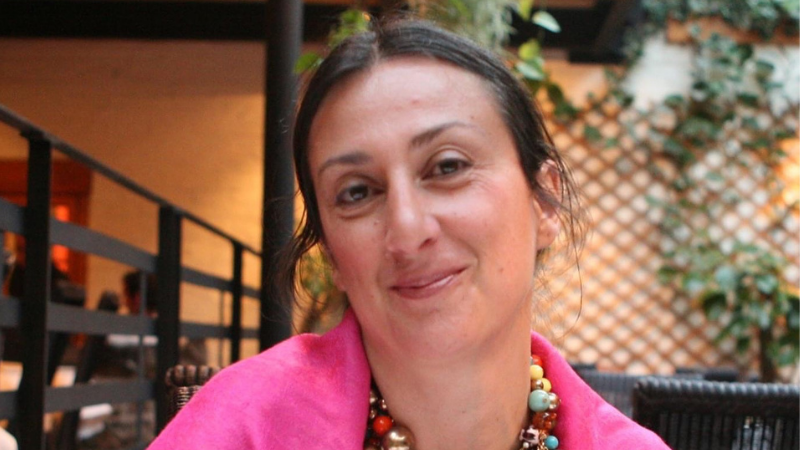The government has no intention of debating the Opposition’s proposed Bills that incorporate the recommendations made by the public inquiry, that much is clear.
Yet, instead of saying so clearly, the public is treated to a series of partisan soundbites and conflicting statements. Throw in a smattering of legalese for good measure and voilà – you’ve confused your readers and observers into a despondent silence.
Who said what?
It started innocuously enough when Justice Minister Edward Zammit Lewis told the press that the government had already made a number of changes to the law that addresses, among other issues, the fight against organised crime and the law on the way judges are appointed. He said the government would work with the Opposition “if the measures make sense”.
The qualification was unnecessary because these measures are the recommendations that were made by the panel of judges – recommendations that Prime Minister Robert Abela declared he accepted.
Then in swoops Labour MP and Party Whip Glenn Bedingfield like a peregrine falcon on a field mouse. Speaking to Malta Today, he said the government side will not be allowing a package of anti-corruption Bills tabled by the Opposition because they contain elements of a Money Bill, adding that “I would be going against the rules of the House and the Constitution”.
Our Constitution does not specifically refer to a ‘Money Bill’, but Article 73 of the Constitution does bear some similarity to an Act of the Westminster Parliament which was intended to curb the powers of the House of Lords in financial matters – the Parliament Act of 1911.
In broad terms, the purpose of a ‘Money Bill’ is to authorise expenditure or taxation or the granting or raising of loans and matters that are incidental to those subjects including the issue and audit of public accounts.
Malta’s Constitution is similar (but not identical), meaning that unless authorised by the President, Malta’s House of Representatives cannot proceed with a Bill that affects public funds (for example, by changes to taxes or imposing charges on revenues).
Money Bills can have a devastating impact if defeated, such as when Nationalist MP Franco Debono voted against Lawrence Gonzi’s Budget in December 2012, forcing Gonzi to call on the President to advise him on when to dissolve parliament and when to call a general election.
I have just published the full report of the Public Inquiry Daphne Caruana Galizia. The report merits mature analysis beyond partisan arguments. Lessons must be drawn and the reforms must continue with greater resolve. – RA
— Robert Abela (@RobertAbela_MT) July 29, 2021
Legal experts contacted by The Shift have noted that while the UK law underscores the word “only” in its definition of the Bill (therefore narrowing the scope of what can be considered a ‘Money Bill’), Malta’s Constitution allows for a broader interpretation, such as Bedingfield’s, which one expert described as “tenuous”.
At the time of the interview, Bedingfield did not specify which of the Opposition’s anti-corruption measures or which provisions within those proposals, could be considered as a “financial measure” (the term used by the Constitution instead of ‘Money Bill’).
On the same day Bedingfield spoke to the press, the prime minister addressed a Labour Party rally commemorating his second year as prime minister. He called the anti-corruption proposals “a gimmick and a political stunt”. Why would he label the proposed Bill a “political stunt” if they are based on the recommendations of the board of the public inquiry?
This is what Abela had to say on social media about the public inquiry report when it was published in July 2021: “I have just published the full report of the Public Inquiry Daphne Caruana Galizia. The report merits mature analysis beyond partisan arguments. Lessons must be drawn and the reforms must continue with greater resolve.”.
On Tuesday, Speaker Anglu Farrugia ruled that parliament will need the President’s address to discuss the Bill because the proposal to create the new post of anti-corruption inquiring magistrate would necessitate funds to set up the office and provide the necessary resources.
One more time…
On Wednesday, the Opposition re-tabled the anti-corruption Bill and removed those parts that needed the President’s signature for debate in parliament. What will the reason for avoiding a discussion be this time?
Perhaps, instead of shielding themselves behind technicalities, the government should just come clean and say it has no intention of debating these recommendations a few months before an election. It has no intention of being upstaged by the Opposition and that the Labour Party’s political survival is currently more important than tackling the fundamental causes of why so many things were allowed to happen under Joseph Muscat’s leadership.
So much for Robert Abela’s “greater resolve”.
Featured photo is by Pippa Zammit Cutajar.













Mela dawn iridu veru GOVERNANZA TAJBA meta ghad hemm fosthom li kienu YES MAN taht dak il hmieg kollu min KASTİLJA